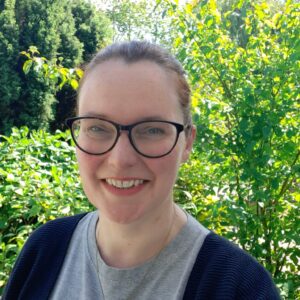“You never know how much you really believe anything until its truth or falsehood becomes a matter of life and death to you.”
― C.S. Lewis
Death is often called the “Great Unknown” – the biggest mystery of life. Those who go before us don’t send back vlogs of their experiences. Nobody writes back from beyond the grave. For many of us, this lack of proof of an “afterdeath” leads us to assume that there is nothing after we die. Our body dies and so we die, like switching off a laptop.
One of the people I helped to prepare for death had trouble imagining that anything continued after he died. Let’s call him Stef. He was a fit and energetic man in the prime of his life, living with incurable cancer. “There is no proof of life after death!” He would exclaim, looking at me disbelievingly. “How can you believe in something you can’t prove?”
I couldn’t prove to Stef that something lives on after we die. Yet holding onto only what can be proved didn’t offer any solace either. Science meets its limits when it comes to death and seems to leave us empty-handed and bereft of hope. As we sat contemplating the idea of him never experiencing anything ever again after death, I felt the deep despair of that thought.
Perhaps it’s not so surprising that many of us turn to a hope that we will go to a “good place” when we die. What then is the function of this hope? The answer may be simple: we are giving ourselves something to hold onto so we can step into the unknown.
When we hear traditional explanations about death and the next life, these stories can resonate with us, even if we cannot prove them. They can inspire us and give us a bigger perspective. Instead of feeling banished into oblivion, we can have a sense of becoming part of the never-ending flow of energy, wisdom and narrative of life. They give us a destination to reach for, a bridge to the future.
The question of what to believe in continued to be a topic of many of my conversations with Stef. We eventually agreed he could prepare for both eventualities – EITHER that his consciousness would end at the moment of death OR that it would continue.
“If there’s really nothing, then once you’ve died you won’t suffer in the slightest from the fact that there is nothing,” I reassured him. He smiled. “So we bet on two horses then?” “Yes!” I continued. “It’s more about what you believe about death right now. You’re suffering now from the thought that your consciousness will end when you die. If you discover that your consciousness is still there after you’ve died, then whatever you have read about the afterlife or reincarnation may help you further.”
The last time I met with Stef before he died, we went for a walk in the Vondelpark in Amsterdam. He had been given just a few weeks to live. The trees were starting to sprout new leaves – the magnolias were showing great promise. As we walked, he was enjoying each budding tree and flower intensely. I asked him how he was feeling, having prepared so thoroughly for his death for so many months. “You know, I’m feeling so much gratitude for the amazing life I’ve had… but as regards death, and this might sound funny, I mainly feel curious….”
